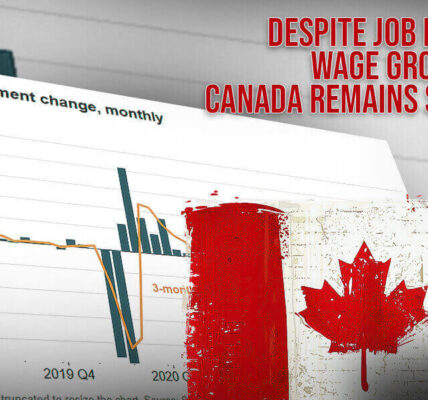Royal Bank of Canada (RBC) surpassed analysts’ expectations for third-quarter earnings on Thursday, thanks to cost cuts and higher interest rates but warned of more layoffs ahead as it deals with rising expenditures. The excellent results follow RBC CEO Dave McKay’s announcement in May that the bank will restrict recruiting after it was overshot by thousands of personnel.
According to the bank, the number of full-time employees is down 1% from the previous quarter, and it aims to slash personnel by 1% to 2%.
“The bank did a commendable job in managing expenses, with an improvement in its overall efficiency ratio,” said a Barclays analyst, John Aiken.
However, Toronto-Dominion Bank fell short of Bay Street’s quarterly profit estimates due to increased expenditure and rainy-day preparations to settle existing loans. A C$306 million penalty related to the termination of the bank’s First Horizon purchase also hurt earnings.
Since March of last year, the Bank of Canada has hiked interest rates ten times to combat persistent inflation, boosting profitability for banks’ consumer operations as they benefit from greater loan revenues.
This contributed to a 5% increase in earnings for RBC’s retail division. However, profits from TD’s Canadian personal and commercial banking sector declined by 1%, while income from its US retail unit plummeted by 9%.
“A higher interest rate would put the consumer under pressure. But, so far, they’ve shown to be tough, but we’re keeping a close eye on them,” TD CFO Kelvin Tran said in an interview.
Banks set aside more money for problematic loans than in the previous quarter as consumers struggled to make payments amid rising living costs. RBC set aside $616 million for credit losses, up from $340 million the previous year, while TD set aside $766 million, up from $351 million.
Net interest income—the difference between what banks earn on loans and what they pay out on deposits—rose 6.7% at RBC to C$6.29 billion and 3.5% at TD to C$7.29 billion.
According to Refinitiv data, RBC posted adjusted earnings of C$2.84 per share, exceeding analysts’ projections of C$2.71 per share.
The results benefited from a reduced tax rate as a consequence of the Canada Recovery Dividend, which was enacted in the 2023 budget.
TD’s adjusted profits per share of C$1.99 fell short of the forecast of C$2.04.





